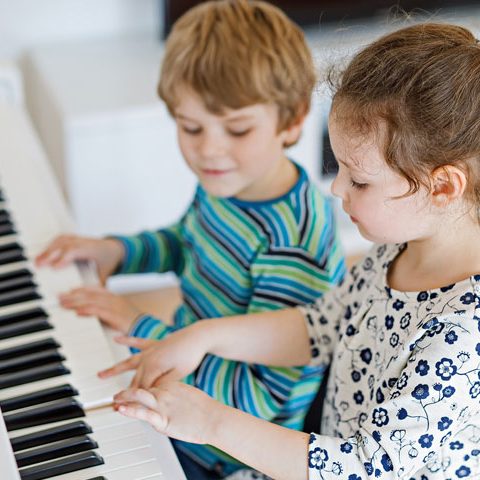
Music helps each family member unlock their potential through developing goal-achievement habits, understanding their mind-body-energy connection, and nurturing their individual expression through songwriting, performance, family music, and music wellness. The Jackson Music Program's mission to make it easy for the whole family to get the benefits of music. Your child will be learning language skills, as well as stimulating their natural perfect pitch ability they're born with but usually lose in adolescence and adulthood.

Toddler Tunes is here to give your child the benefits of music during the crucial early years of development when the brain is developing the most. Fostering a love of music in your child is a gift for life.Toddler Tunes is designed for kids ages 1-7 to learn music and develop their natural love, comfort and instincts for music and music wellness. Research shows that a parent’s support is the single most important factor in a child’s musical success. It’s good to reward them for milestones, such as finishing a method book or practicing consistentlyĪs a parent, your involvement is incredibly valuable. Keep comments positive and remember to also praise the effort they put in. Recognizing their progress, no matter how small, will foster their love of playing. This will give your child a taste of what’s out there, and you can broaden your own musical horizons as a bonus! Praise them for their accomplishments.Įverybody needs encouragement now and again, and you are one of the most important people to hear it from. Listening to the pieces they’re playing will help them in the learning process, but if you get tired of hearing “Twinkle, Twinkle, Little Star” for the umpteenth time you can explore other pieces in the classical music repertoire. You can help them in the learning process by having music on in the background as they do other things. It’s a good idea to expose your child to classical music early on. Many teaching methods stress the importance of listening to music at home. Your involvement is still valuable, but may take the form of reminding them to practice or offering encouragement and recognition for the progress they make. As they get older, they gain more independence and are able to practice on their own more effectively, especially if they have a strong foundation. With children aged five to ten, it may be necessary to be present for every practice session, helping them to carry out the concepts taught in lessons. All you need to do is: Build a level of competency on your instrument (s).

They may not be able to accurately recall everything from their lesson or translate it into good practice routines. Younger children need more guidance with every aspect of practice. Children should be introduced to music from a young age and can start music lessons between the ages of 4 and 9 years old. Helping them with practice can take different forms. It’s vital to keep open communication with your child’s teacher and stay up to date on assignments and progress even if you can’t attend lessons. Each student is encouraged to be multi-instrumental and pursue well-rounded musical growth, including technique, theory, perfect pitch and relative pitch ear training, songwriting, performance, and family music. This may involve going to lessons and taking notes, especially when they first start learning. Kids music lessons are available for piano, uke, drums, guitar, vocals, and others. It’s important to know what’s going on so you can help them out at home. Research shows that when parents are involved in both lessons and practice, kids are more likely to continue in music and reach high levels of achievement.

#KIDS MUSIC TUTOR FREE#
It’s important to stay in the loop with lessons. Toddler Tunes includes a free kids music lesson show for ages 1-7, a childrens book that teaches music, and an in-person group class. Beyond the basics of paying for lessons and arranging transportation, here are some ways you can (and should!) be involved in your child’s musical development.

The good news is that you don’t have to have any kind of musical background yourself, as long as you’re willing to learn alongside them. Lessons are a commitment for you as well as your child because, as a parent, your involvement in your child’s lessons is the single greatest indicator of success.


 0 kommentar(er)
0 kommentar(er)
